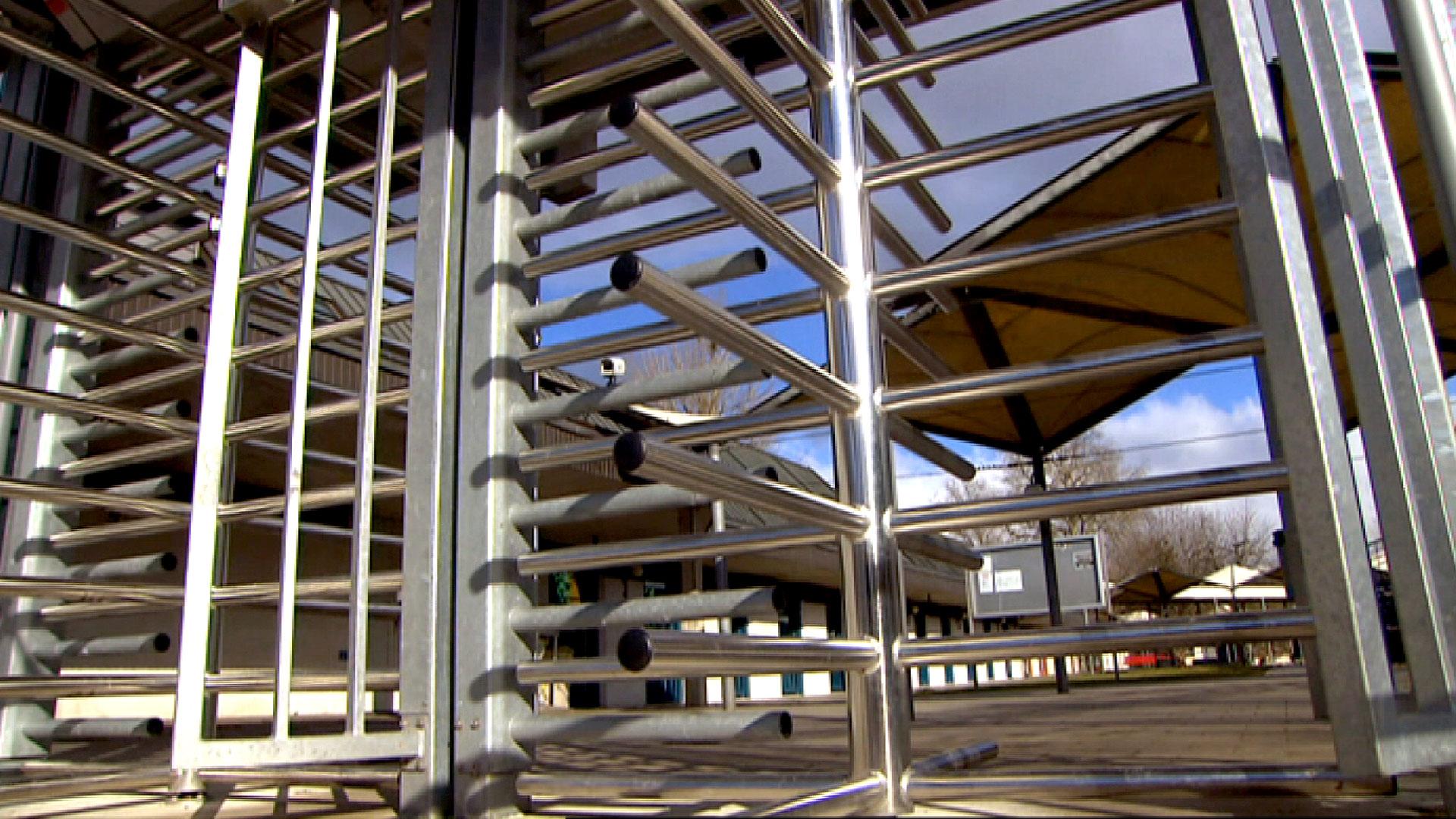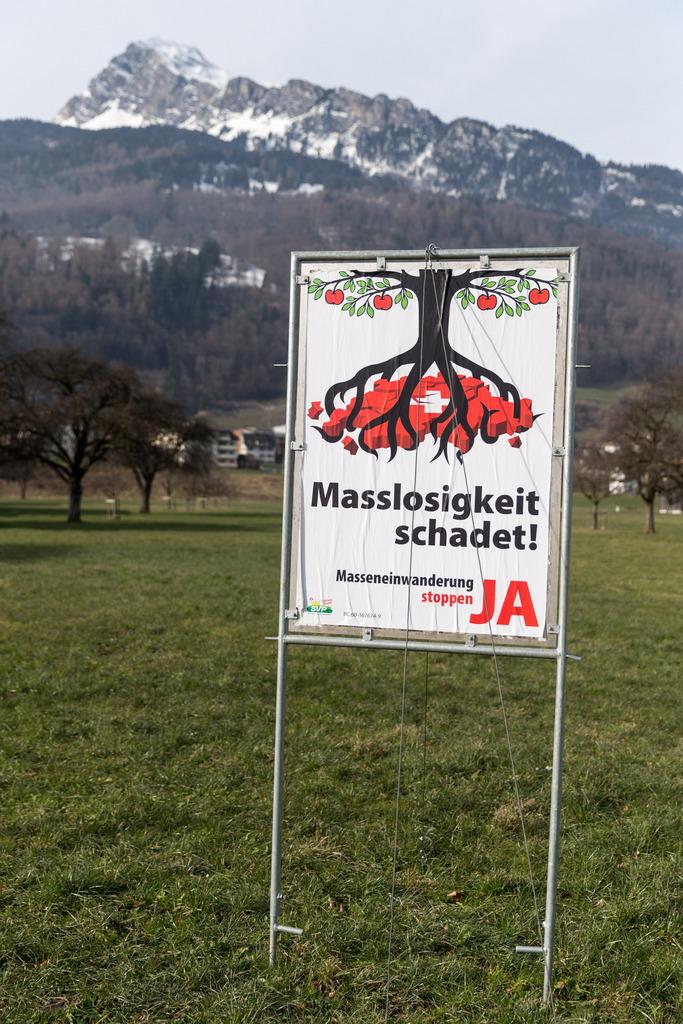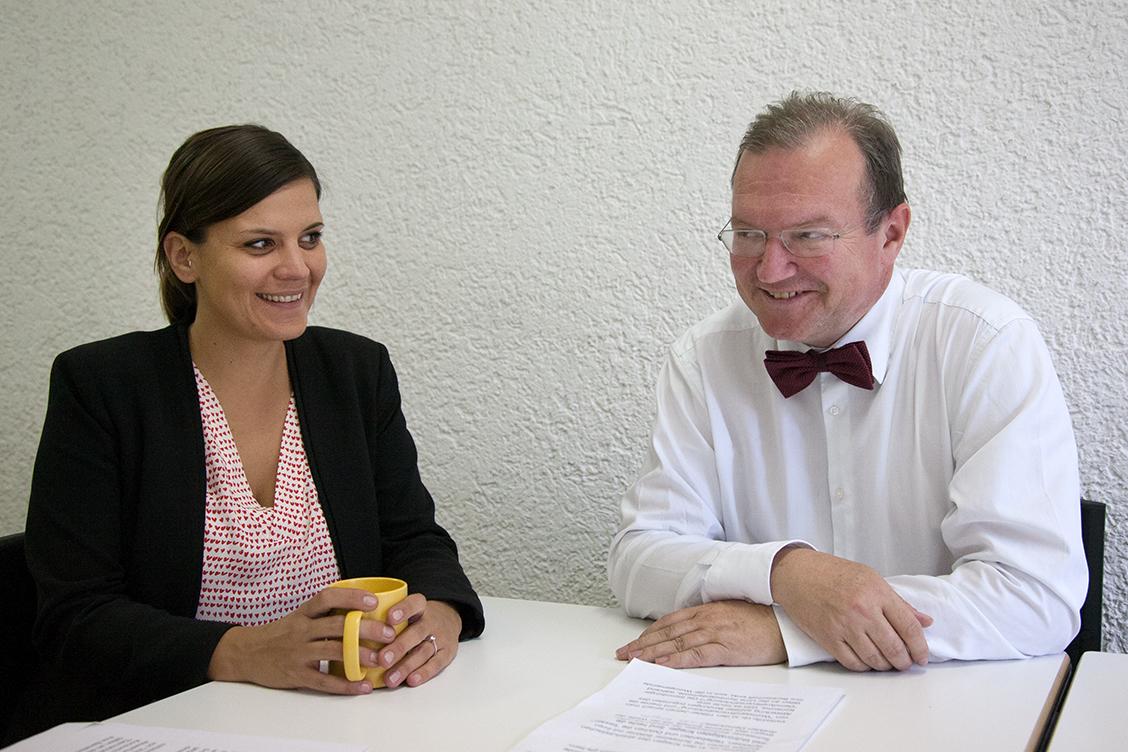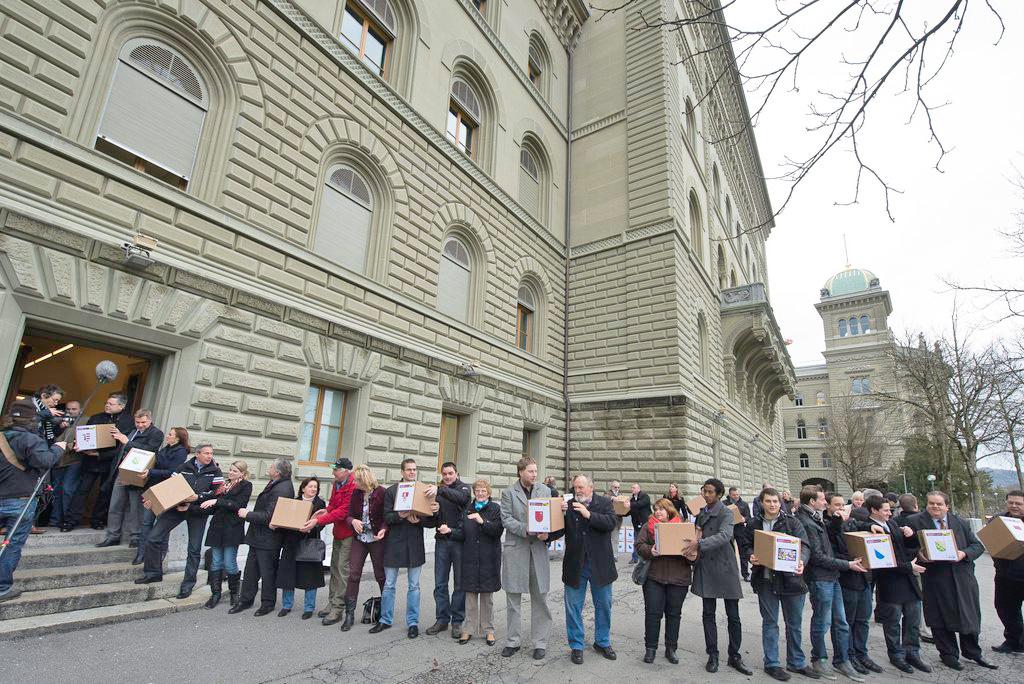Squaring the rule of law with the people’s will

Parliament has finally come to an agreement on implementing a controversial initiative to expel foreign criminals. This issue has put the direct democracy system to the test, as the people’s will needs to be reconciled with international law.
About five years after the Swiss approved the initiative on the deportation of foreign criminals (known as the expulsion initiative), parliament has resolved one of the most controversial and hotly debated issues in recent decades – at least for the time being.
The law to implement the rightwing initiative, adopted by both houses of parliament last week, actually adds to the list of crimes justifying deportation that were specified in the original Swiss People’s Party initiative.
The text approved by voters specified only murder, sexual violence, kidnapping, human trafficking, drug trafficking, and social welfare abuse.
The new legislation also provides for a residence ban of five to 15 years to be imposed for serious offences.
According to figures provided by the government, about 500 foreign criminals were deported in 2013. With this new legislation to implement the initiative, a further 5000 people would be affected.
Deportation will not be automatic for every offence: judges can opt not to impose it in cases of hardship, or where it would put the deportee or his family at risk.
This particular proviso was considered unacceptable by the People’s Party, which wants there to be no exceptions.
The party now hopes to reverse this decision of parliament with another initiative calling for full implementation of the original initiative. It is likely to come to a nationwide vote next year.
Squaring the circle
With this legislation, the curtain falls only on the first act of a political and legislative issue which for years has been giving headaches to government, parliament and legal experts.
There is more drama to come.
In the meantime, swissinfo.ch has reviewed the background leading up to this decision of parliament, illustrating the complexity but also the limits of the Swiss direct democracy.
Increasingly this system means that the people’s will is put at odds with existing constitutional arrangements and international law.
When it first got on the parliamentary agenda in 2009, the expulsion initiative raised the hackles of a large number of parliamentarians of the centre and especially the left.
Automatic deportation of foreigners who commit criminal offences would violate the principle of proportionality, enshrined in the Constitution, and the international obligations Switzerland has entered into.
Under the terms of the European Convention on Human Rights and the agreement on free movement of people between Switzerland and the European Union, deportation is admissible only if the person guilty of a crime is a danger to public order or the security of the country involved. If not, it would count as discrimination against a non-national.
The majority in parliament did not want to just throw out the initiative, however, and came up with a counter-proposal, which made the deportation decision fit the seriousness of the crime and was thus not in conflict with international law.
Yet in 2010 this counter-proposal was rejected in a nationwide vote – while the original initiative passed.
The task of squaring the circle, namely drafting a piece of legislation in conformity both with the initiative and with international law, fell to Justice Minister Simonetta Sommaruga, who set up a working group. Her panel of experts, including one People’s Party representative, were unable to come to an agreement, however.
Second initiative
In 2012, to exert more pressure on the government and parliament, the People’s Party launched an initiative “to implement expulsion of foreigners who commit crimes” (referred to as the implementation initiative) which garnered 155,000 signatures in a few months.
It demanded that the list of crimes and the rules to govern deportation be written into the country’s constitution.
In this way, the party intended to speed up the process and prevent legislators from watering down the original initiative with legislation that was not in its spirit.
This was an unprecedented move, and it paid off.
In March 2014, when the implementation bill was put before parliament for the first time, the centre and right majority of the House of Representatives decided not only to implement the expulsion initiative in full, but in fact to adopt much of the wording of the second initiative from the People’s Party, which goes even further.
It would be up to the Federal Court in individual cases to sort out the issue of compatibility with the constitution and international law.
This decision was unacceptable to the Senate, which studied the bill in December. For a large number of senators, the House of Representatives had yielded to pressure from the People’s Party and seemed to be “trying to implement an initiative before it even went to the people”.
The Senate proposed a compromise between the wording of the expulsion initiative and international law: foreigners guilty of any serious crime would be deported, but there would be an option not to deport in hardship cases, for example in the case of people who had lived many years in Switzerland.

More
A double sentence for a foreign criminal
Third initiative
This solution was finally adopted by the House of Representatives too, but the last has not been heard of the issue.
For People’s Party President Toni Brunner, the decision of parliament does not respect the people’s will and has just started off the battle over the nationwide vote on the implementation initiative, likely next year.
“You can be sure of one thing,” he told parliament. “This initiative will be passed by a majority even larger than that on the expulsion initiative. Then you can forget all of what you have engineered today.”
This new initiative proposal would also conflict to some extent with international law.
According to its wording, the rules regarding deportation “take precedence over non-binding international law. Here binding international law means exclusively the ban on torture, genocide, war of aggression and slavery, and the ban on deporting a person to a state where he would be in danger of being killed or tortured.”
Already in 2013 Justice Minister Sommaruga had recommended that parliament reject this clause of the initiative, because “Switzerland cannot define ad hoc what international law is binding”.
The People’s Party reacted immediately, launching yet another initiative demanding that the priority of national law over international law be enshrined in the constitution.
Collection of signatures started in March and it is expected that this time too, the party will soon reach the needed quota for a national vote.
Initiatives on deporting foreign criminals
Launched in February 2008 by the conservative right Swiss People’s Party, the initiative to expel foreign criminals was passed by 52.3% of voters in November 2010.
The text called for automatic deportation and a residence ban for five to 15 years for all foreigners convicted of murder, sex crimes, kidnapping, people trafficking, drug trafficking, and social insurance or welfare fraud.
To push the government and parliament to implement the initiative quickly, the People’s Party launched another initiative to implement expulsion of criminal foreigners in December 2012.
This unprecedented new initiative proposes to lay down in the constitution what the law to implement the initiative on expulsion should contain. The text contains a list of crimes that is now much wider – including relatively minor ones – and requires that deportation follow automatically, regardless of what sentence is imposed.
Translated from Italian by Terence MacNamee

In compliance with the JTI standards
More: SWI swissinfo.ch certified by the Journalism Trust Initiative








You can find an overview of ongoing debates with our journalists here. Please join us!
If you want to start a conversation about a topic raised in this article or want to report factual errors, email us at english@swissinfo.ch.